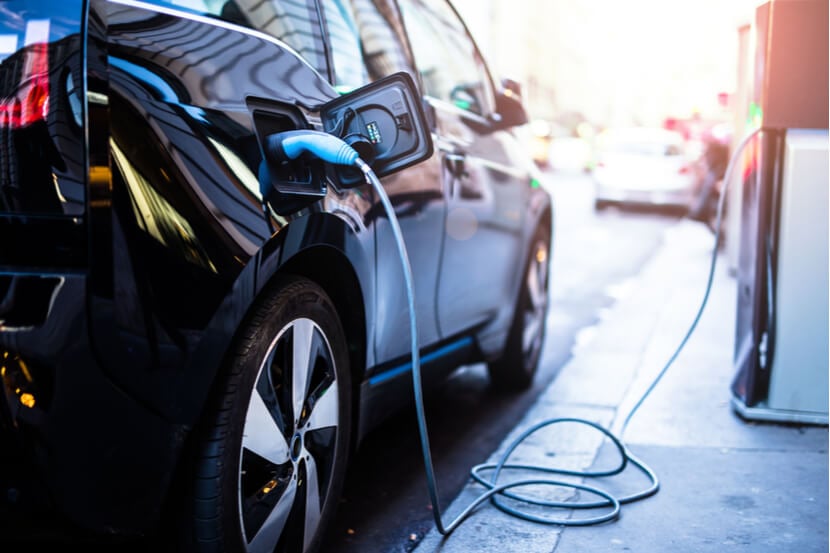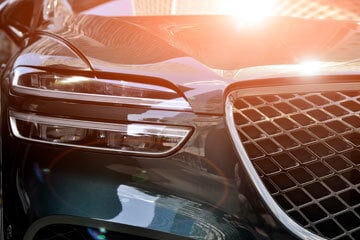Electric cars are becoming more popular as their range and charging options get more attractive. But the decision to buy one ultimately comes down to you.
Before deciding, you should consider what car insurance looks like for electric cars, the pros and cons and how much it could cost you.
This guide will help you decide if an electric car is right for you.

What are the pros and cons of buying an electric car?
Pros
-
Low running costs: Charging is cheaper than using fossil fuels, and electric cars can be cheaper to service because there are fewer moving parts.
-
Better for the planet: Moving to electric from petrol and diesel is a key way to reduce emissions that are harmful to the environment.
-
Tax savings: There is no VED tax on electric cars until 2025.
Cons
-
They cost more to buy: You can expect to pay more for an electric car than cars that run on petrol or diesel. And with government grants scrapped, it might make it harder to afford.
-
Journey planning: Until electric cars reach the range of petrol cars, you need to plan your journeys so you can be sure you're near a charging point when you need to refuel.
-
Charging points: This can be an issue, depending on where you live. If you live halfway up a tower block, it'd be harder to sort out a charging point than if you have a drive or a garage.
If you regularly go on journeys of several hundred miles, you might want to wait a little longer, or opt for the halfway house of a hybrid car.
But if you make short trips into town and back, or a 15-mile commute twice a day, an electric car could be a perfect option for you.
How much do electric cars cost?
According to NimbleFins, the average electric car price in the UK now is between £40,000 and £45,000. If you take luxury cars out of the equation, the average price is somewhere between £25,000 and £30,000.
Once you have an electric car, there are tax savings. Though technically, you still have to register for VED tax.
But electric cars will no longer be exempt from tax after 2025. This comes after the 2022 autumn statement from chancellor of the exchequer Jeremy Hunt.
How much is electric car insurance?
Electric car insurance is likely to cost a bit more than insuring a petrol car.
This is partly because electric cars are more expensive to buy, that increases the potential pay-out an insurer would need to make if your car was written off.
They can also require specialist mechanics, and parts can be harder to source.
You should be able to insure your electric car with most motor insurance providers, but you might want to consider a specialist insurance policy.
Specialist policies can include electric car specific features, like:
- Getting you to the nearest charging point if your battery dies.
- Specific cover for damage to your battery.
- Cover for things such as the charging cables, boxes and adaptors that are vital when it comes to keeping your electric car on the road.
As with all car insurance, the best thing you can do is shop around for the best deal.
Compare car insurance quotes
Electric car range: How far can they go?
This depends on the car you buy. But according to a recent What Car survey, the distance they can actually go is often less than the manufacturers officially claim:
| Vehicle | Distance advertised (M) | Distance in test (M) |
|---|---|---|
|
Tesla Model 3 Long Range
|
360
|
284
|
|
Kia e-Nero 64kWh 3
|
282
|
257
|
|
Renault Zoe R135 GT Line
|
230
|
208
|
|
Mazda MX-30 SE-L Lux
|
124
|
115
|
Early electric cars would struggle to do 30-40 miles on a single charge. Now there are models that do several times that distance.
High-end cars are capable of some of the furthest ranges, but more everyday cars can now go much further, too.
How much does it cost to charge an electric car?
According to our EV zap map, this is what it costs to charge different vehicles assuming the price per kWh is 34p. We've also found what it would cost to charge these models at fast and rapid charge points. These charge more per kWh:
| Vehicle | Useable battery (kW)++ | kWh cost | Cost to Charge* | Fast charge cost** | Rapid charge cost*** |
|---|---|---|---|---|---|
|
Kia Niro
|
64.8
|
£.034
|
£22
|
£36.94
|
£44.71
|
|
Tesla 3
|
57.5
|
£0.34
|
£19.55
|
£22.80
|
£27.60
|
|
VW ID3
|
58
|
£0.34
|
£19.73
|
£33.06
|
£40.02
|
|
Renault Zoe
|
52
|
£0.34
|
£17.68
|
£29.64
|
£35.88
|
With an electric car, the size of the battery (in kWh) multiplied by the cost of charging per kWh which gives you the cost of fully charging your vehicle.
How long does it take to charge an electric car?
There are 3 charging speeds – slow, fast and rapid.
- Slow: A charge overnight at home or during the day at work takes between 8 and 10 hours.
- Fast: A charge somewhere like a car park or supermarket can recharge a battery in 3 or 4 hours.
- Rapid: If you can find a rapid charging point, it should take between 30 minutes to an hour, although not all electric cars have the capability for rapid charging.
You can charge your electric car either at home, at work or using a public charging point. Such as a service station.
Is access to EV charging points improving?
If you'd like to know where your nearest EV charging station is, our EV charging point map could help you out.
You might see more charging points appearing on the map too. According to GOV.UK, drivers could have access to more than 1,000 new electric car charge points, through a £20 million government fund. There are plans for these charge points to be built across 9 local authorities across England such as Durham, Nottinghamshire, and Suffolk.
This scheme should help EV owners who don't have access to a private driveway where they can install a home charger. It should also help reassure motorists who are worried about running out of charge when driving long distances.
According to the Policy Exchange committee, 35,000 charge points need to be installed in the 2020s if the UK is going to be ready for the EV switch in 2030. This is 5 times faster than the current rate.
Are EV charging points accessible for wheelchair users?
Alongside the Department for Transport and the British Standards Institute (BSI), Motability says they plan to develop accessibility standards for EV charging points across the UK this year.
The guidance should help the EV industry solve the challenges raised by Motability. It should also give wheelchair users guidance on which EV charging points are:
- Fully accessible
- Partially accessible
- Not accessible
This should help drivers decide which charging points are suitable for their needs.
Barry Le Grys, Chief Executive Officer at Motability, said:
“There is a risk that disabled people are left behind as the UK’s transition to electric vehicles approaches, and Motability wants to ensure that this does not happen.
“We welcome the interest from government in our research on electric vehicle charging and accessibility and we are excited about our partnership with the Office for Zero Emission Vehicles (OZEV) to further this work.
“We look forward to working together to create world-leading accessibility standards and to support the UK’s commitment to achieving zero emissions. Motability looks forward to a future where electric vehicle charging is inclusive for all.”
How long do electric car batteries last?
Most manufacturers give an 8-year or a 100,000-mile warranty on their batteries. Most batteries in electric cars today are designed to last for at least 12 years – and could still be performing well for up to 2 decades.
Batteries in electric cars gradually become less efficient over time. In much the same way that batteries in mobile phones need more regular charging after they’ve been in use for a few years.
But the technology is improving all the time – and even after a decade of use, they should still give your electric car reliable service.
An option you might prefer is to lease your battery. Not all manufacturers offer this, but if you're able to do this it can give you peace of mind.
It means that should it go wrong or start losing its charge, you can easily get it replaced as part of your leasing contract. It also reduces the initial price of the car, although you'd have to pay an ongoing monthly fee for the lease of the battery.







